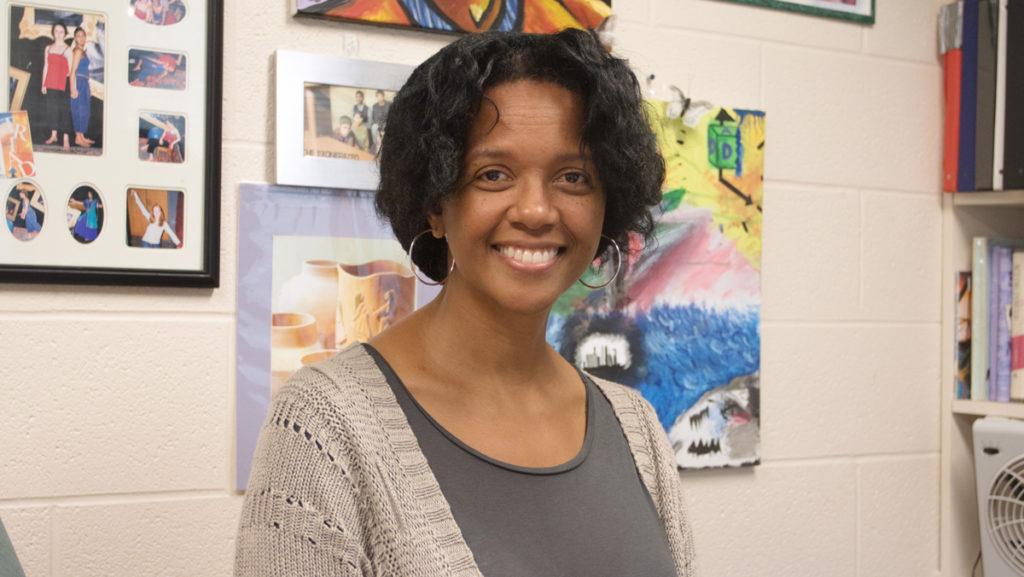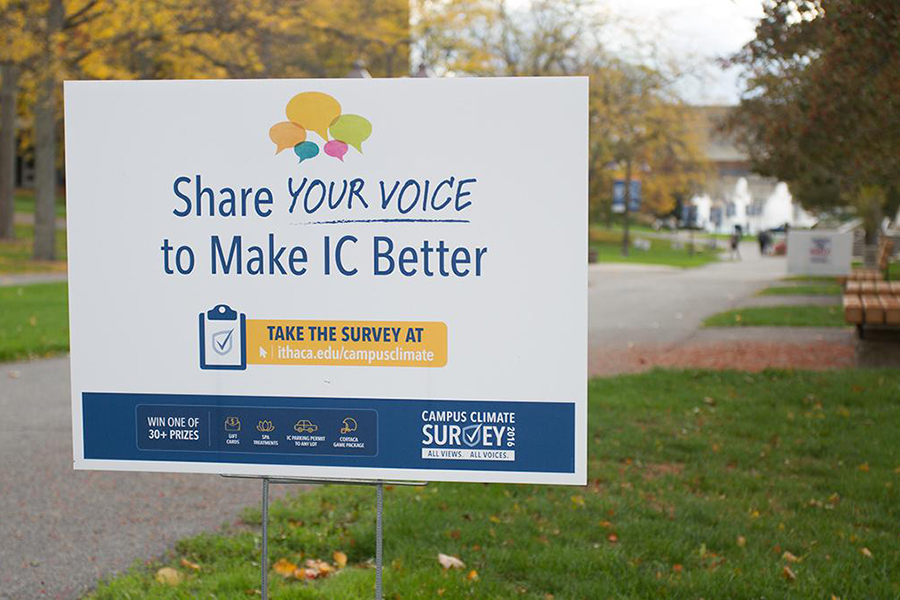For the first time in its 128-year history, Ithaca College has promoted an African American to the rank of full professor.
Cynthia Henderson, professor in the Department of Theatre Arts, was promoted to full professor — the highest rank of professor, preceded by associate and assistant professor — in May. Henderson began working at the college in 2000, and she became the first African-American woman to earn tenure at the college in 2007.
Henderson had to wait at least six years after being tenured before applying to become a full professor, Melanie Stein, dean of the School of Humanities and Sciences, said. As a part of the promotion process, which she started in 2019, colleagues observed her classes, alumni sent letters of recommendation, students wrote statements, the college evaluated her scholarly record and she crafted an essay describing her pedagogical goals, achievements and development.
In May, she received a phone call from Stein, who informed her that she was being promoted.
“First, I was elated,” Henderson said. “Then, I was nervous I had misheard her, so I asked if I had heard her correctly. She wrote me back, and that’s when I cried. They were tears of happiness but also tears of stress relief. It’s a stressful process regardless of your race or gender.”
Stein said she was as excited about the announcement as Henderson was.
“We are thrilled to have her as a member of the top rank,” she said. “The college is trying very hard to diversify the faculty. It’s a moment to be celebrated. As an institution, we are fortunate that she stayed and went through the process.”
Out of the 516 full-time faculty at the college in Fall 2019, 115 members held the rank of full professor, according to the college’s 2019–20 Facts in Brief. The majority of full professors — 63 — are men, and 52 are women. This is compared to 174 associate professors, 91 of whom are men and 83 of whom are women, and 194 assistant professors, 94 of whom are men and 100 of whom are women.
Henderson said that with her promotion, she may be expected to take on more administrative responsibilities. At the college in 2018, full professors made $104,469 on average, associate professors made $84,336 on average and assistant professors made $68,432 on average, according to the most recent data compiled by The Chronicle of Higher Education.
As of Fall 2019, the college counted 93 people of color on its faculty, or 13.1% of the total. That percentage has increased since Fall 2018 when people of color comprised 12.2% of faculty. Nationally, over 80% of full professors are white, with 50% of full professors being white males, according to the most recent data from the National Center for Education Statistics.
Henderson said she doesn’t single out the college for taking almost 130 years to promote an African American to the rank of full professor. Structural racism, she said, is a problem most institutions have had to deal with since the United States’ inception.
“The country was founded on racism, so there’s a reason why it has taken so long for people of African heritage to ascend to positions of leadership and power,” she said.
Henderson grew up in Alabama, and when she was 16, she acted in her high school play and realized her passion for theater. From that point forward, she spent the rest of her life working in theater arts.
“Basically, I was poor, African American and a woman in the Southern U.S.,” she said. “Those are three things right there that are already roadblocks in this nation. Many people, even if they are Caucasian, if they grew up poor, that’s a roadblock. If they grew up poor and a woman, that’s a roadblock. If they grew up poor, a woman and African American, those are next–level roadblocks in the United States.”
In graduate school at Pennsylvania State University, she said, she discovered a love and aptitude for teaching. It was not long after she moved to New York state that she combined her passions for education and performance at Ithaca College.
In 2007, Henderson founded Performing Arts for Social Change (PASC), an independent theater, dance and music program that addresses social issues. In the spring of 2020, PASC was working with students at Boynton Middle School in Ithaca to produce “Speaking Our Truth,” a play depicting the highs and lows of middle school life. The performance was postponed because of the COVID-19 pandemic.
Her work in directing, performance and education has taken her across the world, from Brazil to Cameroon to China to Ecuador. In Ecuador, she taught an acting workshop for community members in which they produced a play focusing on domestic abuse, gang warfare, water shortages, economic challenges and pollution.
Henderson said she believes art should galvanize the audience to think, talk and, most importantly, act.
“Everything needs to have an actionable objective,” Henderson said. “When I teach actors, I always ask them, ‘When you finish speaking, what do you want the audience to do?’ For me, acting is a serious exploration of the human condition.”
Sophomore Mackenzie Seewagen was a student in Henderson’s class, “Theatre for Social Change,” and worked as a project assistant at PASC.
“She’s incredibly intelligent,” Seewagen said. “She has ideas that a normal person would never think of. She is able to create an environment where you feel like you’re learning every time something comes out of her mouth.”
Henderson celebrated the direction the college is moving in though she said that one-time reforms are not enough.
“I think a lot of the attention being given to lasting equity, diversity and inclusion is a good thing,” Henderson said. “But like any good thing, when you take that step, the challenge is to be ready to take the step after that and then the next step and then the next and to be ready to keep walking that walk for as long as you plan on walking.”







